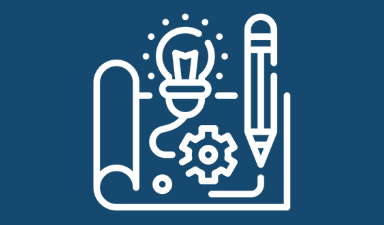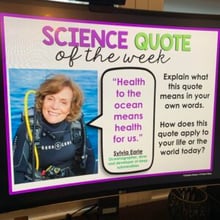Conduction, Convection, and Radiation Activities
for Middle School Science
The resources below will provide students a comprehensive understanding of conduction, convection, and radiation. All of the following lessons are also included in the Kesler Science Membership.
The Conduction, Convection, and Radiation 5E Lesson includes materials for every "E" phase, including the Conduction, Convection, and Radiation Station Lab for Exploration and an interactive PowerPoint with digital INB templates for Explanation.
The lesson also includes introduction materials for Engagement, student-choice project ideas for Elaboration, and assessments for Evaluation.
After completing the Conduction, Convection, and Radiation 5E Lesson, students will be able to investigate methods of thermal energy transfer, including conduction, convection, and radiation.
The Conduction, Convection, and Radiation Inquiry Lab is a hands-on activity that is differentiated for advanced, on-level, and modified middle school students.
Students will examine thermal energy transfer through stations that illustrate conduction, convection, and radiation.
The Conduction, Convection, and Radiation Inquiry Lab includes a brief reading passage, comprehension checks, hands-on activities, reflection questions, and
a CER conclusion.
Conduction, Convection, and Radiation Classroom Experiences
Create a powerful student experience to help solidify students' understanding about conduction, convection, and radiation. All of the following experiences are also included in the Kesler Science Membership.
Escape Rooms
The Heat Transfer Escape Room is an immersive experience for you students It allows them to demonstrate their knowledge of conduction, convection, and radiation in a fun and engaging way.
Students must use what they have learned to investigate methods of thermal energy transfer, including conduction, convection, and radiation. They must verify through investigations that thermal energy moves in a predictable pattern from warmer to cooler until all the substances attain the same temperature such as an ice cube melting. They need to know how to plan an investigation to determine the relationships among the energy transferred, the type of matter, the mass, and the change in the average kinetic energy of the particles as measured by the temperature of the sample, and they need to apply scientific principles to design, construct, and test a device that either minimizes or maximizes thermal energy transfer to complete the escape room.
STEM CHALLENGES
The Project, Bring on the Sun - Build a Soda Can Solar Heater STEM Challenge uses the engineering design process to design and construct a soda can solar panel that can heat a small room on a sunny day. Use your knowledge of thermal energy and convection currents to construct the winning design.
Students will be using collaborative skills such as brainstorming with their peers and reflecting on their progress during the project.
At the end of the Project, Bring on the Sun - Build a Soda Can Solar Heater, STEM challenge, students are given an opportunity to share their projects outside of the classroom.
Year-Round Resources
These year-round activities will increase your students' understanding of many middle school science topics. All of these activities are also included in the Kesler Science Membership.
Visual Data & Graphing
You're not alone if your students struggle with understanding graphs, charts, and tables. It's a skill that takes an enormous amount of practice. This resource will help students build a strong foundation in analyzing data and creating their own data visualizations.
Bell Ringers and Warm-Ups
These middle school science bell ringers are an excellent way to engage your students as soon as they walk into your classroom. This comprehensive FULL YEAR resource includes everything you need to start off each science class with an interesting warm-up activity.
Review Board Games
Each game board has been carefully designed to keep students engaged. There are 10 different action spaces on each board and dozens of question cards. All of the actions are related to science concepts and keep the students motivated throughout the game.
Each game is ready to play. Simply print out the board and the cards and let the students enjoy reviewing nine different units.
Essential Questions and Standards
Below are the essential questions and standards associated with the lessons and activities included in the conduction, convection, and radiation unit. This topic is only one of more than 100 middle school science topics included in the Kesler Science Membership.
-
What methods can be used to demonstrate thermal energy transfers?
-
What are conduction, convection, and radiation, including examples?
-
MS PS1-4 - Develop a model that predicts and describes changes in particle motion, temperature, and state of a pure substance when thermal energy is added or removed
-
MS PS1-6 - Undertake a design project to construct, test, and modify a device that either releases or absorbs thermal energy by chemical processes
-
MS PS3-3 - Apply scientific principles to design, construct, and test a device that either minimizes or maximizes thermal energy transfer
-
TEKS Science 6.9 A - Investigate methods of thermal energy transfer, including conduction, convection, and radiation
-
TEKS Science 6.9 B - Verify through investigations that thermal energy moves in a predictable pattern from warmer to cooler until all the substances attain the same temperature such as an ice cube melting
Kesler Science Membership
Imagine never having to search for another middle school science lesson again. The membership gives you access to ALL of the Kesler Science products in one place (Yes, including everything above).
Say goodbye to long hours of lesson prep.



